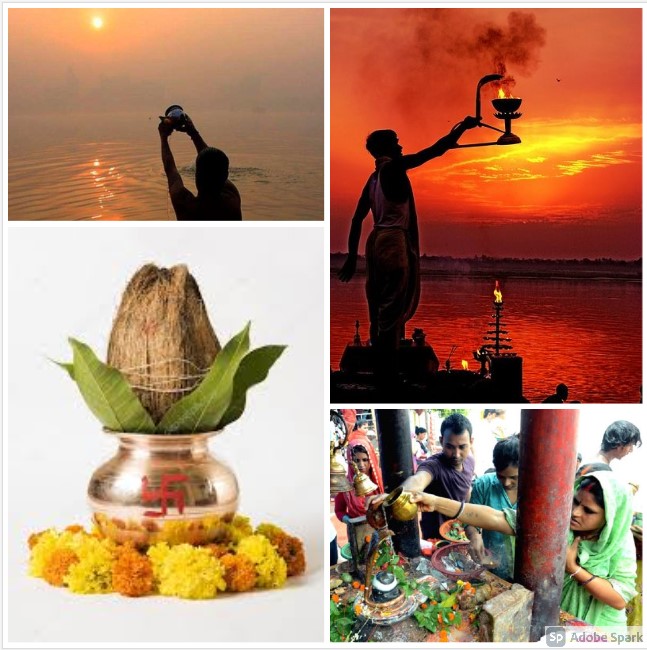WATER – A Divine Worship
In ancient India, water was important for the religious practices of Hinduism. Hindus believe that water is a giver of life, destroyer of evil, and purifier of the soul. In this culture, the rivers are not just seen as just water bodies, but as life-giving gods or goddesses. Indra and Varuna are Gods of water. Indra is the liberator of waters and Varuna is its regulator. Both the gods are executing their assigned duties when they deal with waters. Ancient Indians considered rivers holy goddesses and are extremely important to Hindu water rituals.
Gange cha Yamune chaiva Godavari Saraswati | Narmade Sindhu Kaveri jalesmin sannidhim kuru ||
Narmada Sindhu Kaveri jalesmin sannidhim kuru ||We used to chant above slokas as prescribed in Rig Veda while taking bath, as it has the names of all the holy rivers, Ganga, Yamuna, Godavari, Saraswati, Narmada, Sindhu, and Kaveri in it and the scriptures says that by taking bath in these rivers, humans not only gets their body cleansed but also their soul gets cleansed. There are many different water rituals in Hinduism involving purification and spiritual cleansing.

Bathing in the Ganges, a sacred river is believed to cleanse a person of their sins and purify their spirit. Those who bathe in the Ganges river often leave a small part of themselves such as a piece of hair or a fingernail to attain the paradise of Indra (swarga). The people of ancient India used water to cleanse themselves before prayer. Most traditional temples had man-made ponds or an area for washing hands and feet for people to cleanse themselves before entering. When a child is born a close relative pours water on the child giving them a similar personality as the pourer. The dying persons are often fed drops of sacred water in their last hours. During yoga, water is poured through the nose to cure headaches.
Water is seen through many religions as a purifier and a building block of life and it is incorporated in many rituals and practices. Society was fully aware of its importance in human as well as non-human aspects of life and thus attached great value to it. Thus, water was an extraordinary and universal element and upholder of all lives and the savior of everything living or dead on the earth.
Hence, Indians continued to build structures to catch, hold and store monsoon rainwater for the dry seasons with their centuries of experience. Such unique and traditional techniques of water conservation systems are practiced in India for decades before the debate on climate change even existed. Archaeological evidence shows that the practice of water conservation is deep-rooted in the science of ancient India.
